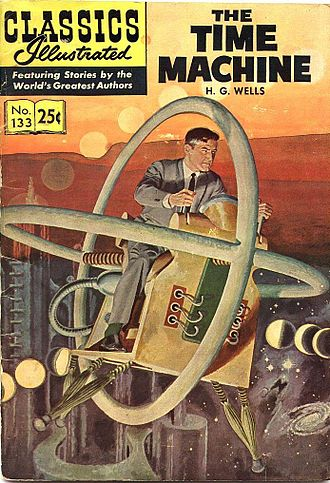

Body of IITR

Albert Camus once said, “Man is the only creature who refuses to be what he is”. I guess he simply felt that our need to be acceptable takes away a part of us that was meant to define our individuality and instead leaves behind something alien in its place. What some call transformation and self-actualization could be a futile and miniscule attempt to make ourselves a little similar to that which we deem worthy of existence. How does one decide what is worth existing or fighting for? Is it what makes us happy?
 Albert Camus, the man behind absurdism.
Albert Camus, the man behind absurdism.
Probably not, because if you look around for just a moment you’ll surely find more frowns and grimaces than smiles. Everyday I see people running scared of happiness, scared to let it out as if it’s a disease; on the corner most tables of restaurants, in buses, in workplaces, in the market, in the balcony of their homes pretending to enjoy company if they have any at all. Nothing deserves attention until it is spoken and even then we jump at the first chance of escaping that situation. We’re not blind, we just don’t feel responsible.
If I say something is worth my time, it would rarely be my honest opinion. I’d be hoping that the person I’m doing it for is looking at me. But that can’t happen in every case, true- we hope the society does make a note of it; after all what the people say becomes the truth. I’m not blaming anyone; all I’m saying is that many of us live our lives without realizing what we really want. We’re a nation that criminalizes homosexuality on the pretext that it is unnatural, this being one of the many ways in which our traditions defy logic and violate the universal freedom rights. So if we are so smart as to make pompous intriguing claims like ‘philosophy will be the death of man’ we must really know our world well, we must have disobeyed every living social being that is conditioned to the system to the point of irreversibility. But then that’s not the case either.
So in the absence of free will or absolutism we would be but different versions of the sole form of existence we know, different only in the way we look. Take this for example, when you see an animal in the zoo or in the wild, you associate some attributes to it which are present in all the other creatures of the same species. You might distinguish between them based on their skin colour, size, countenance; but these are all physical features and we have only nature to thank for it. Animals differ from us in this respect, they blindly follow the laws that nature has set down for them, they don’t defy rules because they lack the ability to question them or to even notice anything out of the box in the first place. This beats the whole purpose of an ethical treatment of dilemmas in their world.
In our world however, man has suffered every time he has stopped questioning. Man must question, he must strive to find answers, he must dare to think different, he must; howsoever scary that may be. It is the only way we grow, evolve on a psychological level. It is the only way we can realize what we really are capable of: our strengths, our weaknesses and our mistakes.
As an underlying thought in the Shiva Trilogy by Amish, it has been said that a tradition that makes sense today might not make sense tomorrow. The caste system, for instance, made sense during the early Vedic period but is no longer valid because we have come a long way from those times. Our physical attributes have remained the same, we still resemble our ancestors but our thoughts have changed. And psychology is the science that helps us understand this change, it only seeks to direct us on a path giving us someplace to begin figuring out this vast ocean of the human mind and its working, it does not however wish to order us in anyway. The psychologists themselves have nothing more concrete than their own imagination to prove their hypothesis.
This also begs the question: could it all be a part of the natural order of things? Is it possible to experience cognitive changes without inducing thoughts? This could also mean that animals might have the ability to extract emotional content from the most extreme of their experiences in whatever minute way they can. Maybe we don’t see it because it’s not the way we do it.

Maybe philosophy doesn’t possess the power to mold our cognition in the absence of an initial thought in the same direction, latent but natural and strong. After all, philosophy itself comes from the ‘scientific’ treatment of some emotion (and bear in mind, I say ‘scientific treatment’ only to prevent myself from transgressing into a completely irrelevant domain). But then maybe this is just an idea you fall upon one day that ceases to make sense the next. Nevertheless, the comparison to animals, though, important is not absolute. One could find some idea about it in the novel, The Time Machine by H.G. Wells where the author explains a futuristic world devoid of technology that has turned into one, way more backward than the history we’ve developed out of. Interestingly psychology is the only science where we are free to make sense out of every idea the way we want to. And if that philosophy is unfathomable to you, you’re probably reading something you don’t need to. Philosophy was never meant to be complex.
Saying that philosophy will be the death of man is like saying that neuroscience will be the death of free will or in other words - the cure is the root cause of the illness. Something like religion - it caused the Crusades and ended it, it teaches us to live in peace and harmony but works as a whetstone for perpetrators to sharpen their weapons against humanity.
Furthermore we create an illusion for ourselves to satisfy our need to be as per someone else’s liking. And the forces that drive us to achieve the same can be attributed to the laws of philosophy. We think, and we reach conclusions. Conclusions wherein we tend to attain beyond reach and somewhere we keep draining ourselves. But, isn’t that what life is all about- “To grow, to be more”. And it’s our ethical reasoning that shall be responsible for the aforesaid endeavor. Will philosophy ever make sense as a whole? I do not think so. It is like a huge mountain of knowledge that gets covered in layers of foolery from time to time.
The understanding that it demands is currently missing somewhere behind the sheets of our casually accepted beliefs, do we ponder upon things to satisfy a personal thirst for knowledge and depth or just because a random idea flew into our minds from the factory of world cohesion? What makes us different from animals is our cognition; it is there because we have immense scope for bringing a change that can revolutionize everything and not just our own lives.
The man of today lives as if there is no philosophy. Does that mean we are content, that we have all the happiness of the world in our hearts or that we have perpetually accepted the universal truth- desire is futile because nothing lasts forever? But then does philosophy have a ‘survival value’- a term often used by C. S. Lewis? Can it die? It sure can disappear because we won’t die instantly if it does but even then, philosophy has no survival value, it gives value to survival instead. Philosophy has lost importance today because we have failed in our duty to preserve the art. Everything ranging from music to motion pictures to our actions and the words we say are becoming meaningless. We’ve been so numb to the pain that our words and actions cause that it’s difficult to realize it anymore. Philosophy was supposed to grow but everyone chose to abuse it. I’m still not sure if philosophy can ever be the cause of such agony that it leads a man to his grave but there is one thing I am particularly certain about- we will cause the death of our own philosophy and the process has already begun!